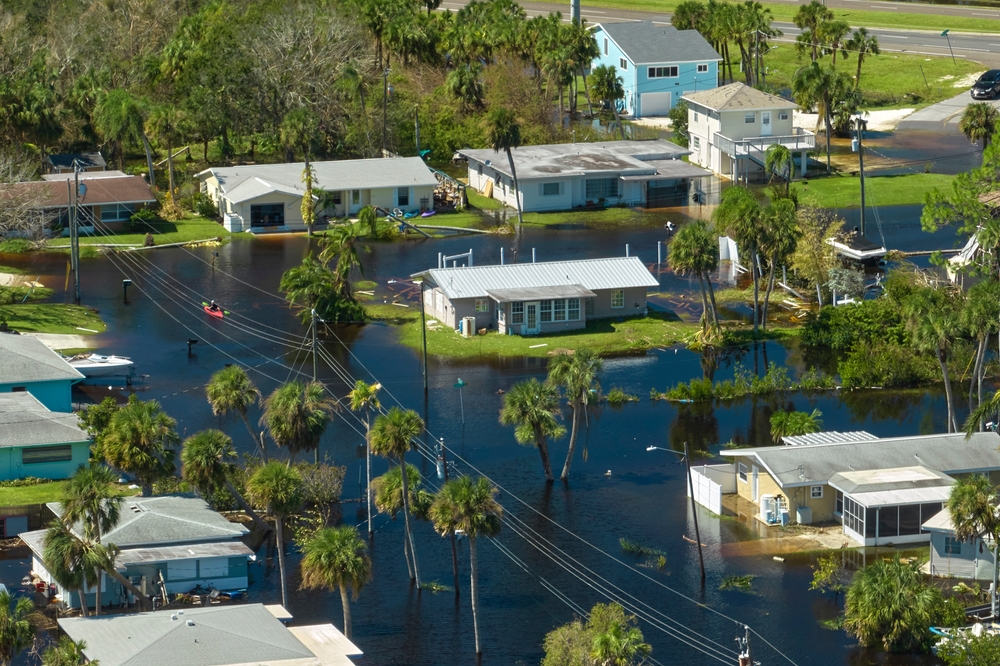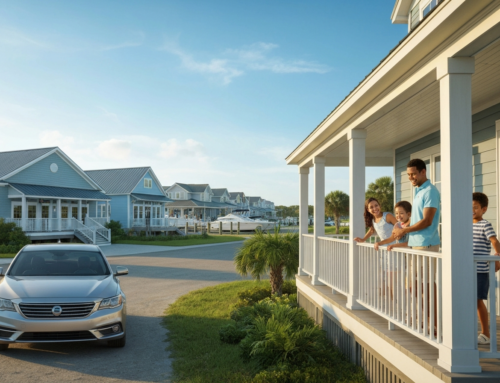Living in areas prone to unpredictable weather, particularly in coastal and low-lying regions, makes flood insurance a crucial consideration for homeowners and businesses alike. Whether you live in Charleston, Myrtle Beach, or Wilmington, flood damage can be devastating and costly, and many standard home insurance policies do not cover floods. So how do you know if you need a good flood insurance policy?
This article will walk you through the key factors to consider when determining whether flood insurance is necessary for your property. By understanding your risk level, local flood zones, and the potential financial impact, you can make an informed decision that protects your home, family, and financial future.
1. Understanding Your Location’s Flood Risk
The first step in determining if you need flood insurance is to understand your location’s flood risk. Flood risks vary by region, and knowing your area’s vulnerability to flooding can help you assess the importance of having the right coverage. Coastal areas like Myrtle Beach and Charleston are particularly susceptible to flooding due to hurricanes, heavy rain, and storm surges. However, even inland cities like Charlotte and Concord can experience floods due to rivers, poor drainage, and other factors.
To determine your flood risk, you can check your property’s FEMA Flood Map, which categorizes areas into different flood zones based on their likelihood of experiencing a flood event. Properties in high-risk flood zones (such as Zones A or AE) are at a greater risk and are often required by mortgage lenders to have flood insurance. Even if you live in a low- or moderate-risk area, floods can still occur unexpectedly, so it’s essential to weigh the risks accordingly.
For example, if you live in Wilmington, you may be in an area with a history of flooding due to hurricanes, making a flood insurance policy a critical safety net for your home or business.
2. Does Homeowners Insurance Cover Flood Damage?
Many homeowners are surprised to learn that their standard homeowners insurance policy does not cover flood damage. Homeowners policies typically cover damages from fire, theft, and certain natural disasters like windstorms, but flooding is excluded from most standard policies. This means that without flood insurance, you would be responsible for paying out of pocket for any damage caused by rising water, including the cost to repair your home, replace personal belongings, and handle any additional living expenses during repairs.
Given that flood damage can easily result in tens of thousands of dollars in repair costs, the financial risk of going without flood insurance is significant, even in areas where flooding isn’t an annual concern. By securing a good flood insurance policy, you can safeguard your property from the costly damages that flooding can bring.
For example, if a sudden rainstorm causes water levels to rise and flood your home in Greenville, without a flood insurance policy, you would have to cover the costs of the repairs entirely on your own.
3. The Cost of Flood Insurance and Potential Savings
While flood insurance adds another expense to your monthly or annual budget, the cost of flood insurance is relatively small compared to the potential financial burden of repairing flood damage. The average cost of flood insurance varies depending on factors such as your property’s flood zone, elevation, and the size of your home. For properties in low- to moderate-risk areas, premiums can be quite affordable, whereas homes in high-risk flood zones may see higher costs.
To offset the cost of flood insurance, many homeowners may qualify for discounts based on factors like elevating the property, adding flood barriers, or having a flood-resistant foundation. These mitigation efforts not only protect your property from flood damage but also help reduce your insurance premiums.
In cities like Charleston or John’s Island, where flooding can be a recurring issue, taking proactive steps to mitigate flood risks can save you money in the long run while providing peace of mind.
4. Climate Change and Evolving Flood Risks
Climate change is significantly affecting weather patterns, leading to more frequent and intense storms, rising sea levels, and increasing flood risks across the country. Even areas that previously had a lower likelihood of flooding are seeing more severe weather events. As a result, homeowners in places like Charlotte and Concord, which may not have been historically known for floods, are now experiencing heavier rainfall and flash flooding more often.
Because of these evolving risks, it’s essential to consider the long-term outlook when deciding whether to purchase flood insurance. A home that seems safe from flooding today may become more vulnerable in the future, and having a good flood insurance policy in place ensures that you’re prepared for any unexpected changes in weather patterns.
For example, if you live in Wilmington, rising sea levels and changing weather patterns may increase your flood risk over time, even if you’re currently in a lower-risk flood zone.
5. Protecting Your Home and Investment with a Flood Insurance Policy
Flood insurance is not just about protecting your home; it’s about protecting your financial investment and your family’s well-being. Without flood insurance, the costs of repairs, replacing damaged belongings, and covering temporary housing can be financially devastating. On the other hand, having a good flood insurance policy provides security and peace of mind, allowing you to recover quickly after a flood event.
Whether you own a home or a business, protecting your property with flood insurance can make all the difference in how quickly you’re able to recover after a flood. In areas like Myrtle Beach, where flooding is a common occurrence during hurricane season, investing in flood insurance is a wise decision to protect your investment and avoid financial ruin.
Determining whether you need flood insurance depends on your location, your property’s flood risk, and your financial situation. However, even if you’re in a low- or moderate-risk area, flooding can happen unexpectedly, and without flood insurance, the costs can be catastrophic. By understanding your flood risk, recognizing the limitations of your homeowners insurance, and considering the long-term impact of climate change, you can make an informed decision about whether a flood insurance policy is right for you.
At Beach Insurance LLC, we specialize in helping homeowners and businesses in Charleston, Wilmington, Greenville, and beyond secure the right flood insurance coverage for their needs. Contact us today at 843-718-0075 to learn more about flood insurance policies and how they can protect your property and financial future.







Leave A Comment